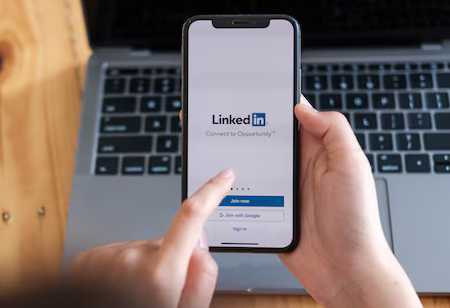ASCI Issues Advisory for LinkedIn Influencers on Brand Disclosure
A crucial advisory has been recently communicated to the LinkedIn influencers by the Advertising Standards Council of India (ASCI), asking them to comply with guidelines that call for revealing all the material connections with the brands, services, or advertisers they promote. This is intended to enhance enforcement of the self-regulatory framework of law as well as ensure the integrity of influencer marketing.
In the last week alone 60 such cases have been reported to our notice by alert professionals at Linkedin. Of these, 56 cases are being processed for violations again for primarily not declaring the material connections. Now also under the lens are such Regulations for Incorrect Presentation and Aspiration or Statements in Advertisement of the ASCI Code and the Guidelines for Influencers in Digital Media and Central Consumer Protection Authority's (CCPA) Guidelines.
The YesMadam display ad was highlighted in a viral LinkedIn post most recently, showing the brand empowers many beauticians and allows them to earn high incomes. However, a few posts related to the particular ad omitted that this was an advertisement. Someone, on being pointed out by Manisha Kapoor, CEO and Secretary-General of the ASCI, added the hashtag #Ad to his or her post. Influencers often use hashtags like #collab or #Ad to notify their followers that posts are sponsored by a particular brand.
LinkedIn does not offer platform disclosure tools such as ad labels, or partnership declarations. In this case, the influencer themselves place the mandated disclosure terms in their content like "Ad" Or "Partnership," among other terms. Of late, one experiences a whole lot of episodes where professionals talk, write or post praising certain products and even advertising campaigns, with no real mention that this is a part of a campaign. These leave the audience dropping the hat, thinking that professionals bring about unbiased views, untouched by any collaboration. Recently a number of alert professionals now tag The Advertising Standards Council of India (ASCI) into such suspected posts, which then examines such cases.
Key Takeaways for Influencers:
- Material Connection: Influencers have to reveal any relationship with marketers that could affect the honesty of contents.
- Disclosure Requirements: The disclosure must be upfront and written in conspicuous terms, neither as hashtags nor a link.
- Compliance: Influencers should orient themselves with the norms claimed under ASCI Guidelines along with CCPA needs.
Manisha Kapoor, secretary general and CEO of ASCI, stated, "LinkedIn influencers are seasoned professionals and trusted voices in their respective fields; this makes it all the more important for them to lead by example when it comes to responsible influencing. Being transparent about material connections is mandated both by the ASCI Code and the CCPA guidelines. The advisory is a direct reminder that such non-disclosures could lead to a loss of credibility for violators, as well as possible action by the regulators. We thank the LinkedIn community of professionals who are aiding ASCI by sharing such links and helping keep the advertising ecosystem honest.”
To assist influencers in adhering to these regulations, ASCI offers The Responsible Influencing Playbook, an e-learning certification course. This course includes modules covering regulatory requirements, understanding disclosures, and guidance on how influencers can protect themselves. Designed to enhance skills in responsible influencing, the course aims to foster a community built on trust and transparency.
🍪 Do you like Cookies?
We use cookies to ensure you get the best experience on our website. Read more...






